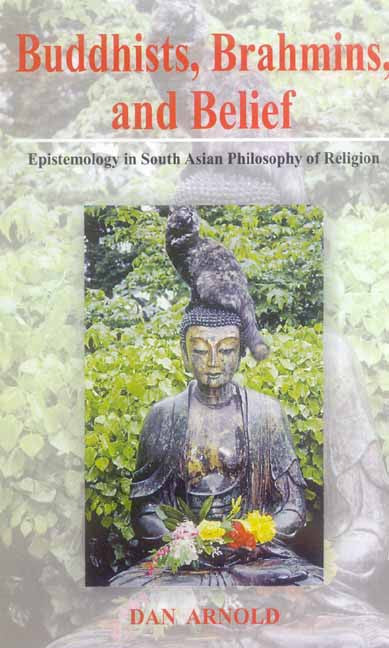Buddhists, Brahmins, and Belief
Buddhists, Brahmins, and Belief - Hardcover is backordered and will ship as soon as it is back in stock.
Couldn't load pickup availability
In Buddhists, brahmins, and belief, Dan arnold examines how the Brahmanical tradition of Purva Mimamsa and the writings of the seventh-century Buddhist Madhyamika philosopher Candrakirti challenged dominant Indian Buddhist views of epistemology. Arnold retrieves these two very different but equally important voices of philosophical dissent, showing them to have developed highly sophisticated and cogent critiques of influential Buddhist epistemologists such as Dignaga and Dharmakirti. His analysis developed in conversation with modern Western philosophers like William Alston and J.L. Austin-offers an innovative reinterpretattion of the Indian philosophical tradition, while suggesting that premodern Indian thinkers have much to contribute to contemporary philosophical debates. In logically distinct ways, Purva Mimamsa and Candrakirti's Madhyamaka opposed the influential Buddhist school of thought that emphasized the foundational character of perception. Arnold argues that Mimamsaka arguments concerning the "intrinsic validity" of the earliest Vedic scriptures are best understood as a critique of the tradition of Buddhist philosophy stemming from Dignaga. Though often dismissed as antithetical to "real philosopy," Mimamsaka thought has affinities with the reformed epistemology that has recently influenced contemporary philosophy of religion. Candrakirti's arguments, in contrast, amount to a principled refusal of epistemology. Arnold contends that Candrakirti marshals against Buddhist foundationalism an approach that resembles twentieth-century ordinary language philosophy-and does so by employing what are finally best understood as transcendental arguments. The conclusion that Candrakirti's arguments thus support a metaphysical claim represents a bold new understanding of Madhyamaka.
Review(s)
"Buddhists, Brahmins, and Belief is cross-cultural philosophy at its best, a dazzling foray into the heart of Indian and Western ideas of knowledge, reality, and truth." -Roger R. Jackson, Carleton College, editor and translator of Tantric Treasures: Thre
About the Author(s)
About the Author:Â Dan Arnold is assistant professor of the philosophy of religion at the University of Chicago Divinity School.
-
Pages
-
Edition
-
Size
-
Condition
-
Language
-
Weight (kg)
-
Publication Year
-
Country of Origin
-
Territorial Rights
-
Reading Age
-
HSN Code
-
Publisher




